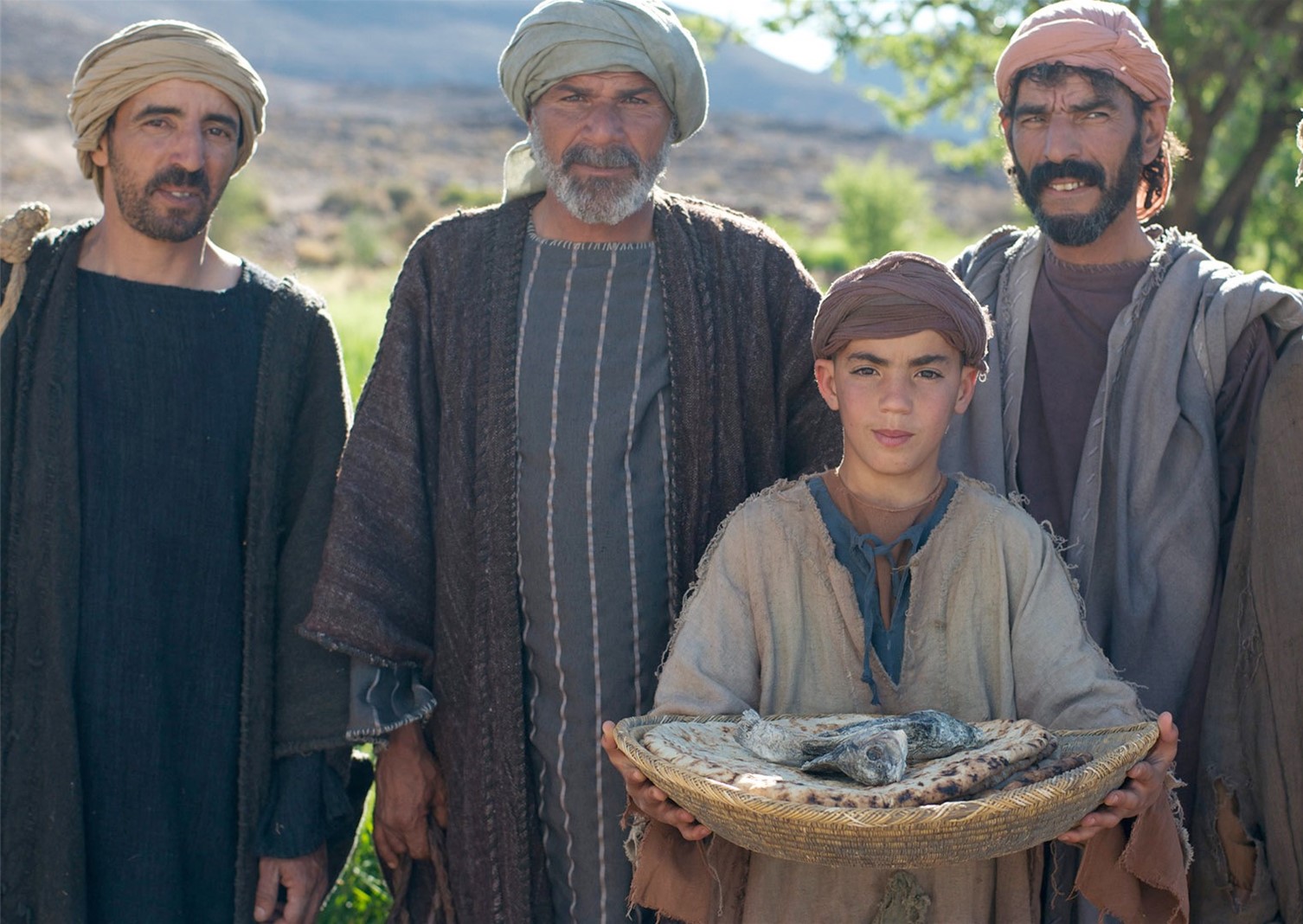
Therefore they gathered them together, and filled twelve baskets with the fragments of the five barley loaves, which remained over and above unto them that had eaten. (John 6:13)
Only two miracles are recorded in all four Gospels. One of them is the resurrection of Jesus Christ. The other is the miracle we will discuss today. This miracle, while very small in comparison to our Lord’s resurrection, teaches us a very important truth: God wants to use people to perform His work. He doesn’t need us; He will perform His will regardless. However, God delights in giving us opportunities to serve Him, then rewards us for doing so.
In today’s discussion, we will see that God can use anyone to accomplish His will. He doesn’t need someone rich, important, or well-known; He simply needs a willing vessel. A willing vessel has no age restrictions and needs no social status; he needs only to surrender what he has to the Lord.
The Lad
After these things Jesus went over the sea of Galilee, which is the sea of Tiberias. And a great multitude followed him, because they saw his miracles which he did on them that were diseased. (John 6:1-2)
Everywhere that Jesus went, crowds of people followed Him. Sometimes, it was because they wanted to hear Him preach; most of the time, those people hoped to see Him perform miracles. One such time was the account we will discuss today.
In John chapter 5, we see the account of Jesus’ healing of a man by the pool of Bethesda; this healing caused a great stir among many of the people. So, even when Jesus departed from that area and crossed over the sea of Galilee, many people still followed Him because they had seen Him perform great miracles.
And Jesus went up into a mountain, and there he sat with his disciples. (John 6:3)
We often see Jesus going up into the mountains throughout Israel to get apart from the great crowds that followed Him; many times, He went alone to pray. This time, His disciples were with Him.
And Jesus went forth, and saw a great multitude, and was moved with compassion toward them, and he healed their sick. (Matthew 14:14)
The multitude followed Him up the mountain; they were eager to learn from Jesus and to see what He would do. Jesus was not upset that they had followed Him; instead, He had compassion on them and helped them.
And when it was evening, his disciples came to him, saying, This is a desert place, and the time is now past; send the multitude away, that they may go into the villages, and buy themselves victuals. (Matthew 14:15)
When Jesus then lifted up his eyes, and saw a great company come unto him, he saith unto Philip, Whence shall we buy bread, that these may eat? And this he said to prove him: for he himself knew what he would do. (John 6:5-6)
The people remained for many hours until it was evening and time to eat. In one account, we see Jesus asking Philip what he thinks they should do for the people; in another account, we see the disciples advising Jesus to send the people away to buy their own food. We see from John 6:6 that Jesus already had a plan.
But Jesus said unto them, They need not depart; give ye them to eat. (Matthew 14:16)
Philip answered him, Two hundred pennyworth of bread is not sufficient for them, that every one of them may take a little. (John 6:7)
The disciples were worried; they knew that they didn’t have enough of anything to give to the people. Unfortunately, they weren’t thinking about the One who was with them nor the miraculous power that He possessed. They were looking for an earthly solution.
One of his disciples, Andrew, Simon Peter’s brother, saith unto him, There is a lad here, which hath five barley loaves, and two small fishes: but what are they among so many? (John 6:8-9)
“There is a lad here…” That is the only mention that this young boy gets. However, it was enough that he was there and that he was willing to surrender what he had.
The disciples doubted that Jesus could do anything with only five little loaves and two small fish. After all, we learn later in the passage that there were over 5,000 people present; many believe there may have been as many as 20,000 people there. Wouldn’t we have some doubts as well?
And Jesus took the loaves; and when he had given thanks, he distributed to the disciples, and the disciples to them that were set down; and likewise of the fishes as much as they would. When they were filled, he said unto his disciples, Gather up the fragments that remain, that nothing be lost. Therefore they gathered them together, and filled twelve baskets with the fragments of the five barley loaves, which remained over and above unto them that had eaten. (John 6:11-13)
Jesus took the lad’s simple offering, blessed it, then turned it into so much more.
What We Can Learn
Through Christ’s miracle of feeding the 5,000, God demonstrates that He is big enough to shatter all our finite expectations and abundantly provide for our needs. His goodness exceeds our imaginations. Christ amplified the meager provisions that were brought to Him, and similarly, God amplifies our gifts, money, and talents when we bring them to Him. Our possessions and attributes are never too small to serve God. He delights in blessing us, and Scripture continually shows us that He uses smallness and weakness to display His glory:
But God hath chosen the foolish things of the world to confound the wise; and God hath chosen the weak things of the world to confound the things which are mighty; (1 Corinthians 1:27)
We can also learn that Jesus uses people to perform His work. He could have provided food for all those people out of thin air, but instead, He chose to use the food the boy had shared and use His disciples to distribute the meal. God graciously involves us in His work.
We also learn about trust. The disciples had to trust that Jesus would provide the means to feed the crowd, and they could only give what they received. This makes the disciples, and Christ’s current believers, a huge part of God’s plan in blessing others.
So, will we be like this lad? Are we willing to give all that we have so that God can use us to perform His will? That little boy didn’t know Jesus was going to perform a miracle with his little lunch; he probably just thought that if he gave it, then maybe at least Jesus would get to eat. We don’t know this boy’s name, but we know all that we need to know about his willing spirit. May we, as Christians, be just as willing to make those little sacrifices, to give those simple offerings; it might just be that Christ will turn them into so much more.
